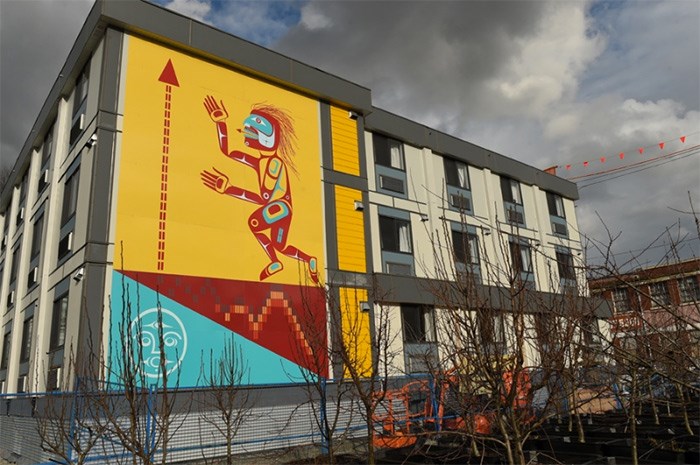To improve affordable housing, a B.C. economist says the province needs a more progressive property tax system — one that raises levies on high-value properties and people who own multiple homes.
Such a policy, says Alex Hemingway, will raise billions of dollars for public housing projects while simultaneously dampening home price growth over the long term.
The policy proposal, laid out in a white paper published Wednesday with the Canadian Centre for Policy Alternatives of B.C., comes as residential property values have grown a “staggering” $1.7 trillion over the past two decades, leading to greater inequality among those who own a home and those who don't, says Hemingway.
“In terms of addressing the inequality that’s been created, that’s really where property tax comes front and centre,” Hemingway told Glacier Media in an interview.
Because property tax reform is both complex and contentious, Hemingway is calling on a citizen’s assembly to discuss options.
12% of B.C. households would pay more, says economist
Hemingway's proposals largely focuses on greater taxes on the priciest properties in B.C., but also reforms along the edges, such as greater emphasis on taxing land and not buildings, as a way to incentivize denser forms of housing.
To raise an extra $580 million annually, Hemingway proposes doubling the existing provincial property surtax on residential properties valued above $3 million (to 0.4 per cent) and $4 million (to 0.8 per cent), as well as adding a new bracket above $7 million (1.5 per cent).
To raise even more money, Hemingway suggests the provincial government apply extra property taxes on owners of multiple homes and properties valued at over $1.5 million. In such a scenario, just 12 per cent of B.C. households would pay more, adding about $2 billion for public housing projects.
That surtax, known as the Additional School Tax, was brought in by the BC NDP government in 2019 and is opposed by the opposition party, BC United.
“The B.C. government has taken some important but limited steps in recent years when it comes to taxing residential property wealth,” said Hemingway.
Lack of public investment adding to cost-of-living crisis
Hemingway said the existing surtax is a “drop in the bucket,” and currently fetches around $223 million annually.
Despite political opposition, Hemingway says polling shows high public support for taxing the wealthy.
“People recognize [higher home values] has been a stroke of luck, and it’s unintentionally come at the expense of others. And that’s corrosive on our social fabric,” said Hemingway.
Hemingway says public spending as a percentage of GDP has declined over the past generation.
“That lack of public investment has contributed to some of the cost-of-living crisis we’re seeing. And that’s why it’s sensible to be thinking about raising additional revenue,” he said.
Hemingway further proposes more complex changes to the current property tax scheme. By shifting tax away from buildings to the land itself, the government could incentivize building denser forms of housing, which Hemingway supports.
Hemingway says it’s also worth considering a consistent property tax rate, as opposed to having it fluctuate (historically downward) to align with government budgets.
“A first step would be to stop automatically cutting provincial property tax rates when property values rise faster than inflation. Holding rates steady wouldn’t raise much revenue initially, but if property values continue escalating, it would raise revenue and ensure more land value gains are captured for the public good,” wrote Hemingway.
To address declining property values, Hemingway suggests a rate floor, especially in regions where home prices are extremely out of line with local incomes.
Hemingway says governments may also want to consider expanding property tax payment deferrals until a property is sold. Currently, the deferral program only exists for homeowners over age 55 and families.
Under a higher property tax scheme, Hemingway said “we may want to expand and if not universalize that option.”
At the heart of Hemingway’s proposal is an effort to disincentivize housing, or land, as an asset class.
Open to 'tax shift' proposal to lower burden on low and mid-level earners
While not including it in his proposal, Hemingway says he supports a plan backed by the think-tank Generation Squeeze that would lower income and sales taxes to offset any hike in property taxes.
That plan seeks to cut provincial income tax on the first $30,000 an individual earns. B.C.’s second income tax rate would be eliminated, leaving earnings from roughly $40,000 to about $79,000 taxed at the rate of 5.06 per cent rather than 7.7 per cent. Furthermore, British Columbians would pay a provincial sales tax between five and seven per cent — all in exchange for a property surtax on properties valued at over $1 million.
“Right now we shelter housing wealth, especially high housing wealth, from taxation and we disproportionately draw on income taxation, including from middle and lower income renters, who aren’t benefiting from massive housing wealth growth,” said Paul Kershaw, a professor in public health at the University of British Columbia and head of Generation Squeeze.
Kershaw says his “tax shift” proposal — aimed at addressing generational wealth inequities — is needed to pay for the growing social and health needs of an aging population. For that reason, he said it only makes sense to draw revenue from that source, which happens to own much of the land in the province.



